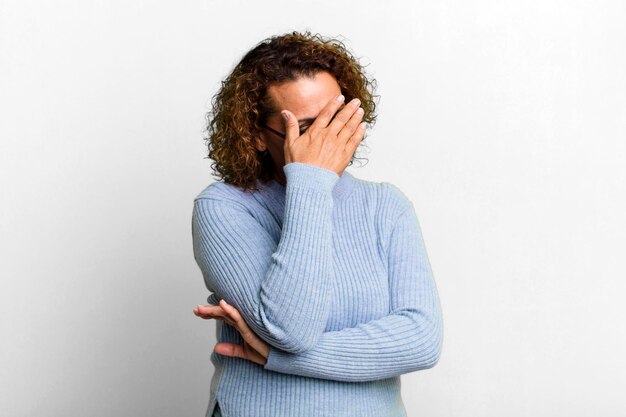Can Alcohol Trigger Anxiety? Here’s What You Need to Know
Imagine this: you’re out with friends, enjoying a few drinks, and having a great time. But as the night progresses and the alcohol wears off, an unwelcome guest might crash your party—anxiety. Many people report feeling anxious after drinking alcohol, raising the question: Does alcohol cause anxiety?
Let's delve into this complex relationship, exploring how alcohol interacts with anxiety and the factors that might influence their connection.
Understanding Alcohol's Effects: The Double-Edged Sword
Alcohol as a Social Lubricant
For centuries, alcohol has been revered for its ability to loosen inhibitions and lift spirits. It can serve as a social lubricant, helping ease anxiety in social settings by promoting relaxation and sociability.
The Downside: Alcohol as a Depressant
However, alcohol is also a depressant. While it might momentarily alleviate feelings of anxiety, its depressant qualities can eventually exacerbate anxiety levels. This dual nature is often misunderstood but plays a significant role in the alcohol-anxiety connection.
How Alcohol Interacts with Anxiety
The Biochemical Impact
Drinking alcohol affects neurotransmitters like gamma-aminobutyric acid (GABA) and dopamine in the brain, which can temporarily boost mood and create a sense of calm. Yet, as the body processes alcohol, these neurotransmitter levels decline, potentially leading to heightened anxiety.
Hangover-Induced Anxiety
The morning after a night of drinking can bring a phenomenon known as "hangxiety"—a blend of hangover and anxiety. This feeling occurs as the body recovers from the effects of alcohol, with symptoms including:
- Increased heart rate
- Restlessness
- Feelings of regret or guilt
The Vicious Cycle
Another complication is the potential for a vicious cycle: individuals might drink to alleviate anxiety, only to experience heightened anxiety afterward, driving them to drink again.
Factors Influencing the Alcohol-Anxiety Relationship
Individual Differences
The impact of alcohol on anxiety varies significantly from person to person. Factors such as genetics, mental health history, and tolerance levels can influence how alcohol affects anxiety.
Binge Drinking vs. Moderate Consumption
The quantity of alcohol consumed plays a crucial role. Binge drinking—consuming large amounts of alcohol in a short period—can severely disrupt neurotransmitter balance, increasing anxiety risks. In contrast, moderate consumption might not have the same immediate effect but can still contribute to anxiety if habitual.
Underlying Mental Health Conditions
Individuals with pre-existing anxiety disorders or other mental health conditions might be more susceptible to alcohol-induced anxiety. For them, alcohol might exacerbate underlying anxiety symptoms.
Practical Tips for Managing Alcohol-Induced Anxiety
Mindful Consumption
- Set Limits: Understand your personal limits and try to stick to them to avoid overconsumption.
- Stay Hydrated: Drink water between alcoholic beverages to slow down consumption and mitigate hangover effects.
Prevention and Management Strategies
- Eat Beforehand: Consuming a meal before drinking can slow alcohol absorption, reducing its impact.
- Plan Ahead: If you are prone to anxiety after drinking, have a plan for managing symptoms, such as breathing exercises or reaching out to a friend.
Seeking Professional Guidance
- Therapy or Counseling: If alcohol-induced anxiety is problematic, consider speaking with a therapist or counselor who can offer strategies for coping and managing anxiety.
- Support Groups: Joining support groups for anxiety or alcohol-related concerns can be beneficial, providing communal understanding and encouragement.
Can Lifestyle Changes Reduce Anxiety?
Regular Exercise
Exercise not only boosts your physical health but also provides an outlet for stress and anxiety relief. Engaging in activities like running, yoga, or even walking can elevate mood-regulating neurotransmitters.
Mindfulness and Meditation
Practicing mindfulness through meditation or breathing exercises can help manage anxiety levels. These practices promote relaxation and can be particularly useful for those dealing with alcohol-induced anxiety.
Balanced Diet
Maintain a balanced diet rich in omega-3 fatty acids, vitamins, and minerals. Nutritional deficiencies can exacerbate anxiety, so focusing on foods that support brain health can positively influence mental well-being.
Adequate Sleep
Ensure you're getting enough quality sleep. Sleep deprivation can increase anxiety levels and worsen the symptoms of a hangover, creating a cycle that's hard to break.
Decoding the Science Behind Alcohol and Anxiety
The Role of Neurotransmitters
Exploring how various neurotransmitters interact with alcohol reveals why the substance can initially seem calming. However, as the blood alcohol level drops, these changes reverse, leading to increased anxiety—a crucial understanding for those curious about why their mood shifts so abruptly after drinking.
Research Insights
Scientific studies continue to investigate the complexities of alcohol's effects on anxiety. Current research suggests that chronic alcohol use might alter the brain's natural coping mechanisms, potentially leading to long-term changes in anxiety levels.
Rethinking Social Norms and Consumption Patterns
The Cultural Context
Alcohol is ingrained in many social traditions and events, often seen as a rite of passage in social circles. This cultural acceptance can sometimes overshadow the individual consequences, leading to dismissive attitudes toward the anxiety-alcohol connection.
Public Awareness
Increasing public awareness about the potential mental health effects of alcohol can encourage more responsible and informed consumption. Understanding that it's okay not to drink in social settings—or to set personal limits—can empower individuals to make their own choices without societal pressure.
Conclusion: Empowering Your Choices
While alcohol can exacerbate anxiety, understanding the relationship between the two can empower individuals to make informed decisions about consumption. By recognizing personal triggers, adopting lifestyle changes, and exploring healthier coping mechanisms, you can mitigate the effects of alcohol-induced anxiety and enhance your overall well-being.
📝 Key Takeaways:
- Moderation Matters: Keeping alcohol consumption in check helps prevent anxiety spirals.
- Know Your Triggers: Awareness of personal anxiety triggers can help manage reactions.
- Healthy Habits: Incorporate exercise, mindfulness, and proper nutrition.
- Listen to Your Body: Trust your body's signals and adjust habits accordingly.
- Seek Professional Help: If needed, don't hesitate to reach out to mental health professionals. 🧠
By understanding and addressing the alcohol-anxiety connection, you have the tools to navigate social settings confidently, securing both your mental and physical well-being.

